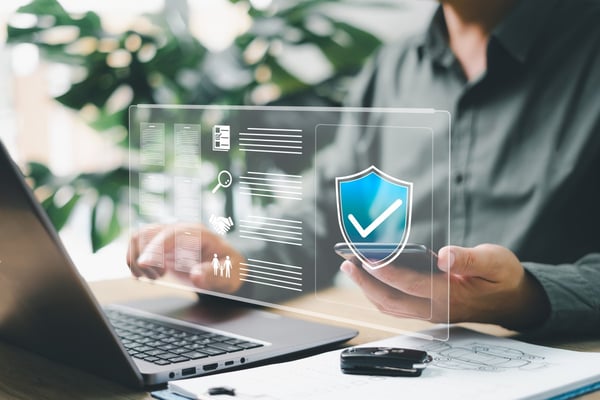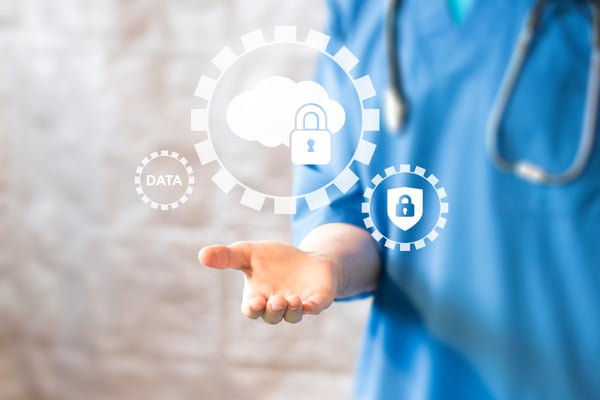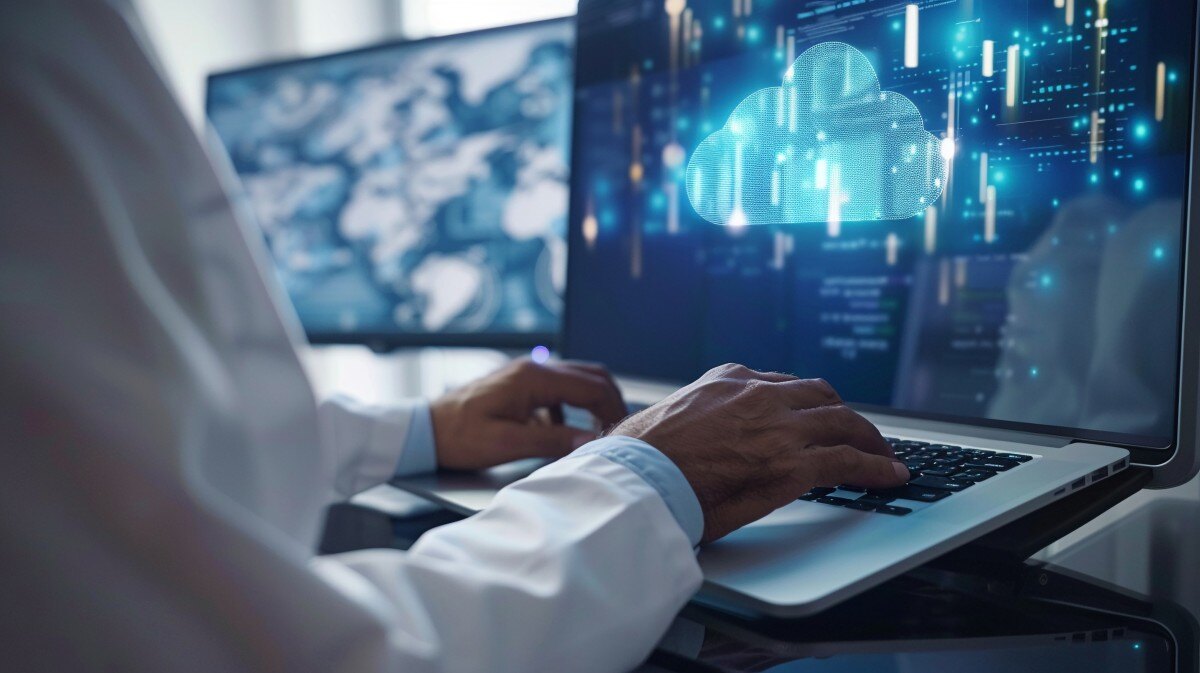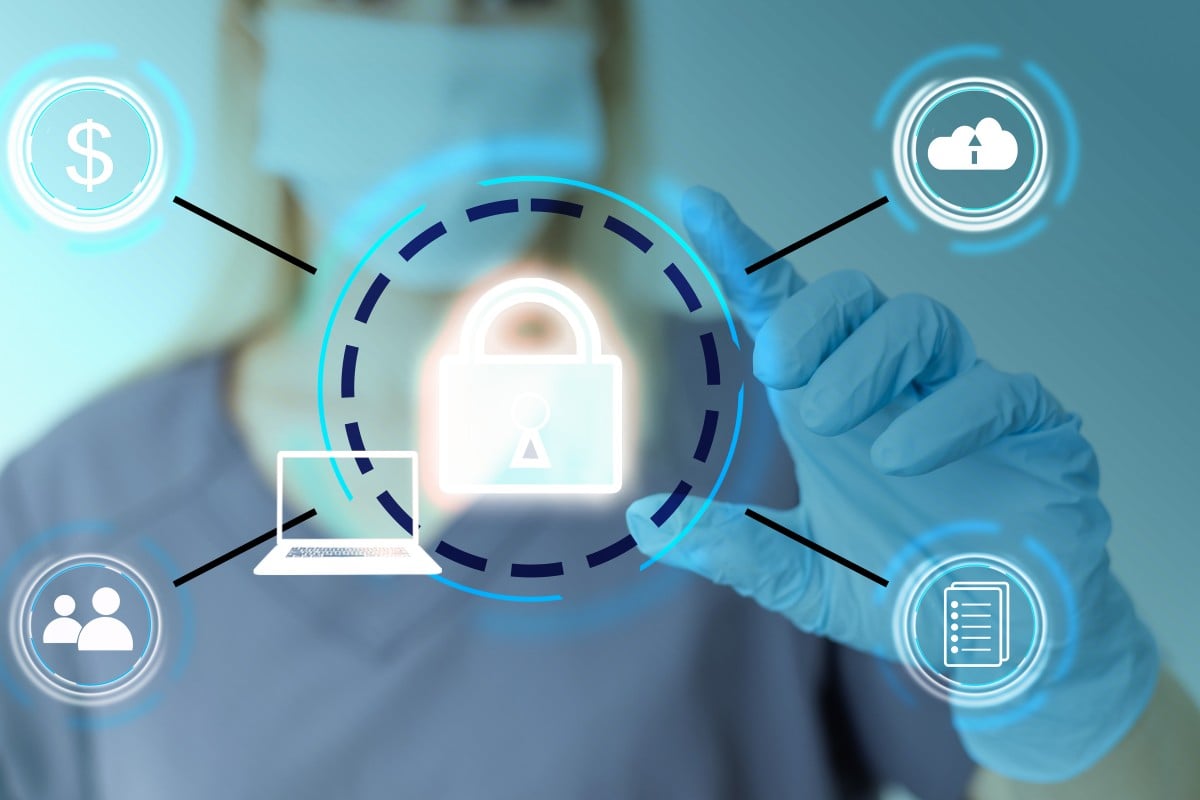Using Patient Education Videos to Support Preventive Care Strategies
As a healthcare provider, you know prevention saves lives. From routine screenings and lifestyle counseling to vaccinations and early detection,...
5 min read
Robert McDermott Mar 14, 2024 12:22:00 PM
 If you’re keeping up with healthcare security news, then you’re likely aware of the ongoing cybersecurity threats in the healthcare industry. With attacks and threats growing year over year, healthcare security is just as important to patients and practices as other business-critical functions.
If you’re keeping up with healthcare security news, then you’re likely aware of the ongoing cybersecurity threats in the healthcare industry. With attacks and threats growing year over year, healthcare security is just as important to patients and practices as other business-critical functions.
This, in itself, can present a challenge as it’s difficult to combine being a doctor or dentist with being a business manager and IT team, or any variation on those roles. The first step, however, to minimizing and mitigating the risk and threat is understanding exactly how it’s impacting healthcare providers.
Quick Links:
Over the last decade, healthcare organizations have, increasingly, made a digital transformation. From managing patient records, communication and billing to eprescribing, the need for a strong cybersecurity stance has become even more critical.
As the most recent Change Healthcare cyber attack demonstrates, threats are ongoing, serious and have, in some cases, long-lasting and wide-reaching implications. In fact, in this one example, an attack on healthcare payments means that everyone from large hospitals and smaller practices to pharmacists reliant on the provider for billing and claims are affected. As a result, patients have gone without treatment and prescriptions and practices have gone without payment.
Like Change, healthcare organizations gather, transmit and store vast amounts of sensitive information, including personal health records, financial data and other personally identifiable information (PII). This wealth of data makes them valuable targets for cybercriminals seeking to exploit vulnerabilities for financial gain or malicious intent.
One of the most significant reasons why healthcare cybersecurity is vital is the protection of patient privacy. Patients trust healthcare providers to safeguard their sensitive information, from EHRs to payment data, and any healthcare data breach of this trust can have severe consequences.
A breach not only compromises patients' privacy but can also lead to identity theft, financial fraud, and even potential harm if sensitive medical information falls into the wrong hands. Moreover, HIPAA holds that healthcare organizations have a legal and ethical responsibility to maintain the confidentiality of patient data.
 Beyond the implications for individual patients, cybersecurity breaches in healthcare can have far-reaching consequences for the entire healthcare ecosystem. They can disrupt operations, leading to delays in patient care, financial losses and damage to the organization's reputation. Further, cyberattacks can pose significant public health risks. For example, if hackers gain access to medical devices or systems controlling critical infrastructure, they could potentially manipulate treatment protocols or cause disruptions that endanger patient safety.
Beyond the implications for individual patients, cybersecurity breaches in healthcare can have far-reaching consequences for the entire healthcare ecosystem. They can disrupt operations, leading to delays in patient care, financial losses and damage to the organization's reputation. Further, cyberattacks can pose significant public health risks. For example, if hackers gain access to medical devices or systems controlling critical infrastructure, they could potentially manipulate treatment protocols or cause disruptions that endanger patient safety.
In addition to the direct consequences of cybersecurity breaches, healthcare organizations also face regulatory penalties and legal liabilities for failing to protect patient data adequately. With the increasing stringency of data protection laws and regulations, non-compliance can result in hefty fines and legal repercussions. Investing in robust cybersecurity measures is not only a matter of protecting patients and preserving trust but also essential for ensuring compliance and avoiding costly consequences.
One of the biggest challenges to maintaining a strong cybersecurity posture for healthcare organizations is the way threats evolve and change. Cyber attackers are constantly seeking new vulnerabilities which means, in turn, healthcare organizations and their software vendors need to be remarkably responsive and proactive, monitoring for vulnerabilities and threats.
One notable shift in cybersecurity threats is the rise of ransomware attacks targeting healthcare institutions. Not only do these attacks jeopardize patient care by disrupting access to medical records and systems, but they also pose significant financial and reputational risks to healthcare organizations.
Additionally, the proliferation of Internet of Things (IoT) devices in healthcare settings has expanded the attack surface for cyber threats. From connected medical devices to wearable health monitors, these devices present new vulnerabilities that can be exploited by hackers to gain unauthorized access to sensitive information or even manipulate medical equipment remotely.
Moreover, the emergence of sophisticated phishing techniques has made it increasingly challenging for healthcare professionals to identify and mitigate security risks. Cybercriminals often use social engineering tactics to trick employees into disclosing confidential information or clicking on malicious links, bypassing traditional security measures and gaining unauthorized access to healthcare networks.
In response to these evolving threats, healthcare organizations must prioritize cybersecurity measures to safeguard patient data and preserve the integrity of their operations. This includes implementing robust encryption protocols, regularly updating software systems to patch vulnerabilities, and providing comprehensive training programs to educate staff about cybersecurity best practices.
By staying vigilant and proactive in their approach to cybersecurity, healthcare organizations can mitigate the risk of cyber threats and ensure the confidentiality, integrity, and availability of patient information.
 Healthcare Cybersecurity Stats You Need to Know
Healthcare Cybersecurity Stats You Need to KnowFrom understanding the scale and size of attacks to the frequency and mechanisms of cyberattacks, it’s essential that practitioners have a holistic view of the cybersecurity landscape. For that reason, we present healthcare cybersecurity stats you need to know.
In short, for many healthcare organizations, it’s not a matter of if they will be targeted, it’s when, especially if those organizations are not mindful of the strategies and protocols they can put in place to mitigate their risks.
 How Your Tech Stack Can Improve Healthcare Cybersecurity
How Your Tech Stack Can Improve Healthcare CybersecurityIn review, most healthcare organizations are underprepared for a rapidly evolving cyber threat ecosystem. It can take time and resources to overcome the challenges of understaffing and insufficient training, but it’s critical to have capable teams to handle patient care, customer service, billing and more. There’s often little time for you to run IT double duty. The good news is you’re not alone.
The better news is that because this is a significant concern, across all healthcare organizations, security support is accessible and available.
The best news? It can all be tailored to your needs. From software support to managed services, healthcare security improvements need not be out of reach.
The first critical step you should take right away is assessing your current security posture so you can determine what you need to address and what you need to prioritize. For many practices, this means starting with a HIPAA risk assessment which can help point out regulatory and security vulnerabilities.
Once you’ve got a baseline, you can determine your true needs. That said, nearly every healthcare organization can benefit from HIPAA compliant email to prevent phishing attacks from even getting to your inbox.
And, if you’re among the nearly 40% of healthcare organizations without backup policies or procedures for critical data, consider a secure, encrypted, HIPAA compliant cloud backup.
But if you need a more comprehensive solution, consider the expertise of an IT team through managed services. Managed IT services for healthcare can help keep your security systems and software up-to-date, protecting your data, patients, and practice.
Need help figuring out which solution would work best for you? Get in touch with the expert team at iCoreConnect. Not only do we offer a variety of solutions, we can tailor them to best meet your needs. Book a demo or reach out to our team today and let’s keep you out of the healthcare cybersecurity stats!

As a healthcare provider, you know prevention saves lives. From routine screenings and lifestyle counseling to vaccinations and early detection,...

There’s no denying that the AI boom is here. The American Medical Association reports that 66% of physicians are currently using artificial...

If only managing your practice’s revenue cycle came with a crystal ball. You could spot claim denials before they happen, predict when patients might...

A quick look at your waiting room reveals some of the more significant changes we’ve seen in healthcare over the past few decades. Gone are tables...

In 2021, medical and dental practices were subjected to all kinds of obstacles, including critical shortages in staff across all aspects of their...

When patients come into your practice, your business team has them fill out a lot of paperwork, whether manually or digitally. The data provided...